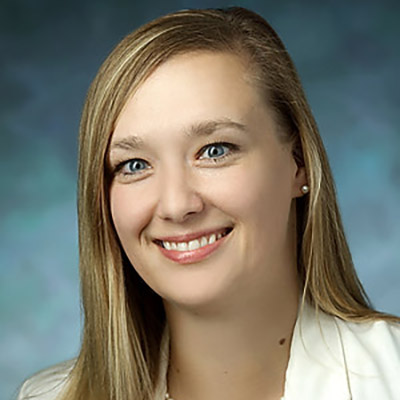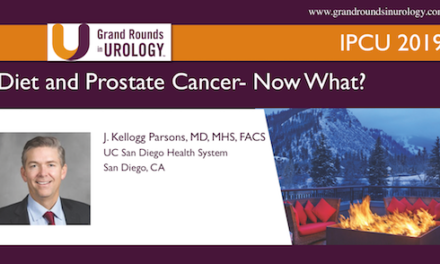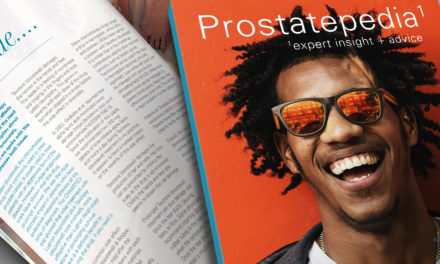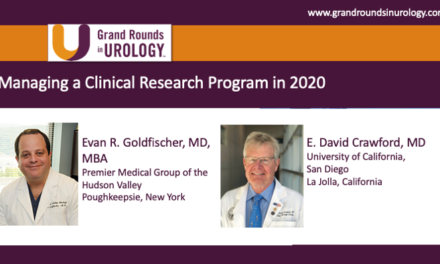Wesley A. Mayer, MD, and Marisa M. Clifton, MD, FACS, FPMRS, presented “Resident Training: Can We Be Too Hard?” at the 26th Annual Innovations in Urologic Practice on September 15th, 2022.
How to cite: Mayer, Wesley A. and Clifton, Marisa M. “Resident Training: Can We Be Too Hard?” September 2022. Accessed May 2025. https://grandroundsinurology.com/resident-training-can-we-be-too-hard/
Resident Training: Can We Be Too Hard? – Summary
Wesley A. Mayer, MD, Associate Professor of Medicine at Baylor College of Medicine in Houston, Texas, and Marisa M. Clifton, MD, FACS, FPMRS, Associate Professor (PAR) of Urology, Urology Residency Program Director, Women’s Health Director, and the Director of Robotic Education at the Johns Hopkins School of Medicine, debate residency training and ponder whether faculty are too hard or too soft on residents. Dr. Mayer introduces the topic and assumes the position that training programs are too hard on residents with Dr. Clifton arguing the counterpoint.
Dr. Clifton begins by describing the clinical and work educational hours expected of residents, highlighting concerns that restrictions on work hours equal more transitions of care and risk a loss of critical patient information, faculty perceive decreased “ownership” of patients, have concerns of decreased resident work ethic, and loss of educational opportunities while noting a failure to provide an accurate depiction of real-world conditions in which there are no work hour restrictions. Dr. Mayer counters that the “rulebook” has dramatically increased over time, stating that the ACGME program requirements for graduate medical education have expanded to 59 pages. Residents are being asked to learn more in less time. Dr. Clifton then points out that the ACGME directs programs to bear the responsibility for non-physician obligations, such as administrative tasks that do not provide optimal educational experience, which does not fully prepare residents for careers post-residency. Dr. Clifton lists the myriad tasks that accompany working professionals. Dr. Mayer responds with the residents’ perspective and the lengthy list of accompanying tasks required of them. He then presents survey data on faculty and resident perceptions of residency programs to highlight the discrepancy in experiences. They conclude with next steps including educational scholarship designed to optimize training settings, leveraging national forums to share best practices, and advocating for the same initiatives in practice as the ACGME advocates for residents in training.
About The 26th Annual Innovations in Urologic Practice:
Presented by co-chairs Mohit Khera, MD, MBA, MPH, and Michael Coburn, MD, FACS, the Innovations in Urologic Practice conference provides a detailed review and commentary on multiple genitourinary and urologic diseases. Among the featured oncological topics are bladder cancer and immunotherapies, as well as upper tract cancer management, prostate cancer, including state-of-the-art imaging, focal therapy, and MRI. Experts also discuss new tools and techniques for nephrectomy and treating advanced renal cell carcinoma. In terms of general urological approaches, the conference also includes pelvic reconstruction and trauma; men’s health topics like male infertility, andrology, and sexual dysfunction; OAB and voiding dysfunctions; and ways to diagnose and treat infections in the urology patient.
For further educational activities from this conference, visit our collection page.

Marisa M. Clifton, MD, FACS, FPMRS,
Associate Professor (PAR) of Urology,
Urology Residency Program Director,
Women’s Health Director,
Director of Robotic Education
Johns Hopkins School of Medicine
Baltimore, Maryland
ABOUT THE AUTHOR
Wesley A. Mayer, MD, is an associate professor of urology, the vice chair for education of the Scott Department of Urology, and an assistant dean of graduate medical education at Baylor College of Medicine in Houston, Texas. Dr. Mayer earned his medical degree from Baylor College of Medicine, graduating with highest honors. He completed his internship in general surgery and his urology residency at the University of Pennsylvania in Philadelphia, Pennsylvania. Dr. Mayer is fellowship-trained in advanced robotic, laparoscopic, and endoscopic surgery in Baylor College of Medicine’s Scott Department of Urology.
Dr. Mayer specializes in advanced minimally invasive surgical treatments for urologic diseases including robotic, laparoscopic (including single-site), endourologic, and percutaneous surgery. He has a special interest in kidney cancer, kidney stones, upper urinary tract reconstruction, adrenal masses, and transplant urology. He has also published research and has been invited to speak on these topics at several national and international conferences. Dr. Mayer has been repeatedly selected as a “Top Urologist in Houston, Texas” in The Leading Physicians of the World and a “Top Doc” in Houstonia Magazine.





